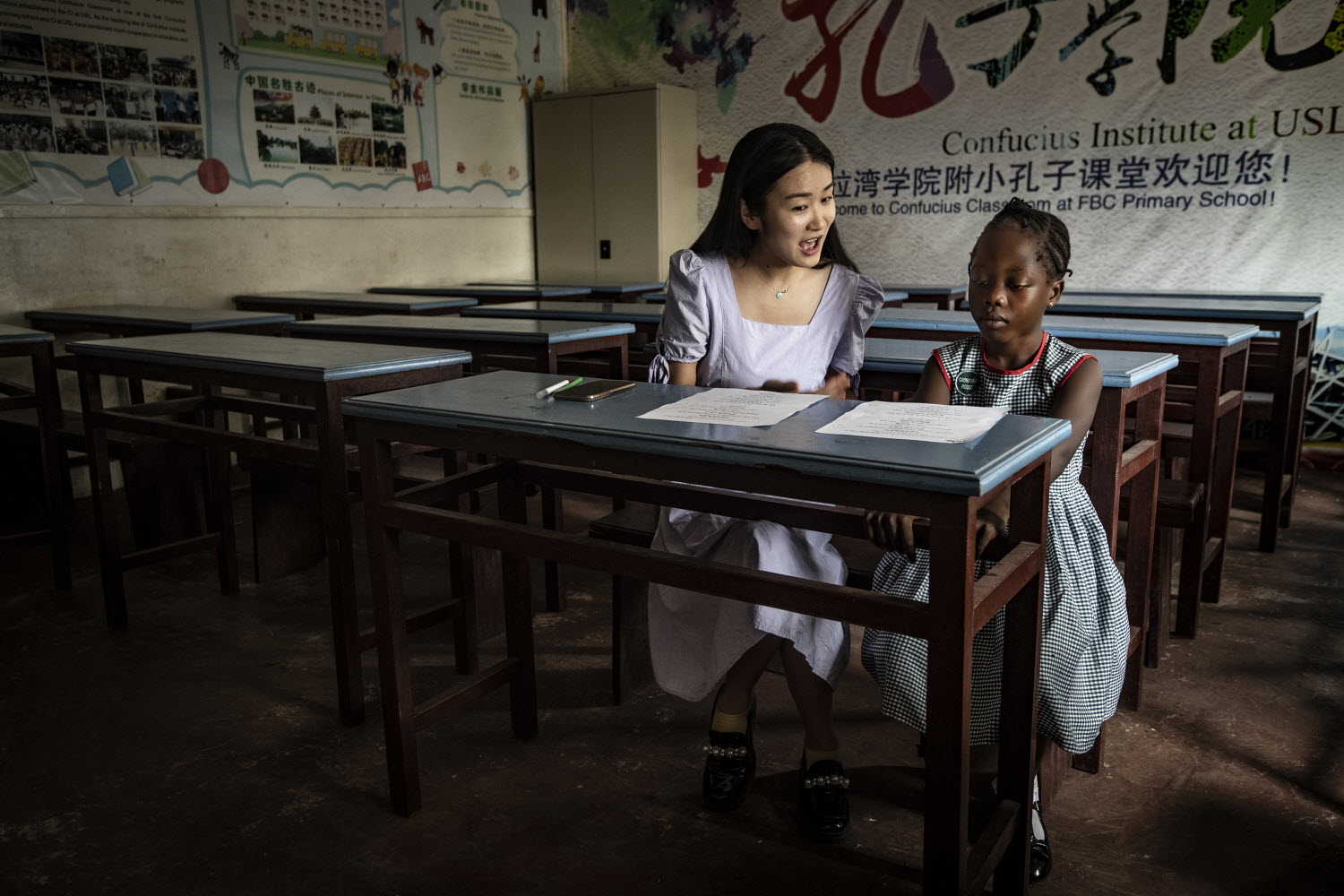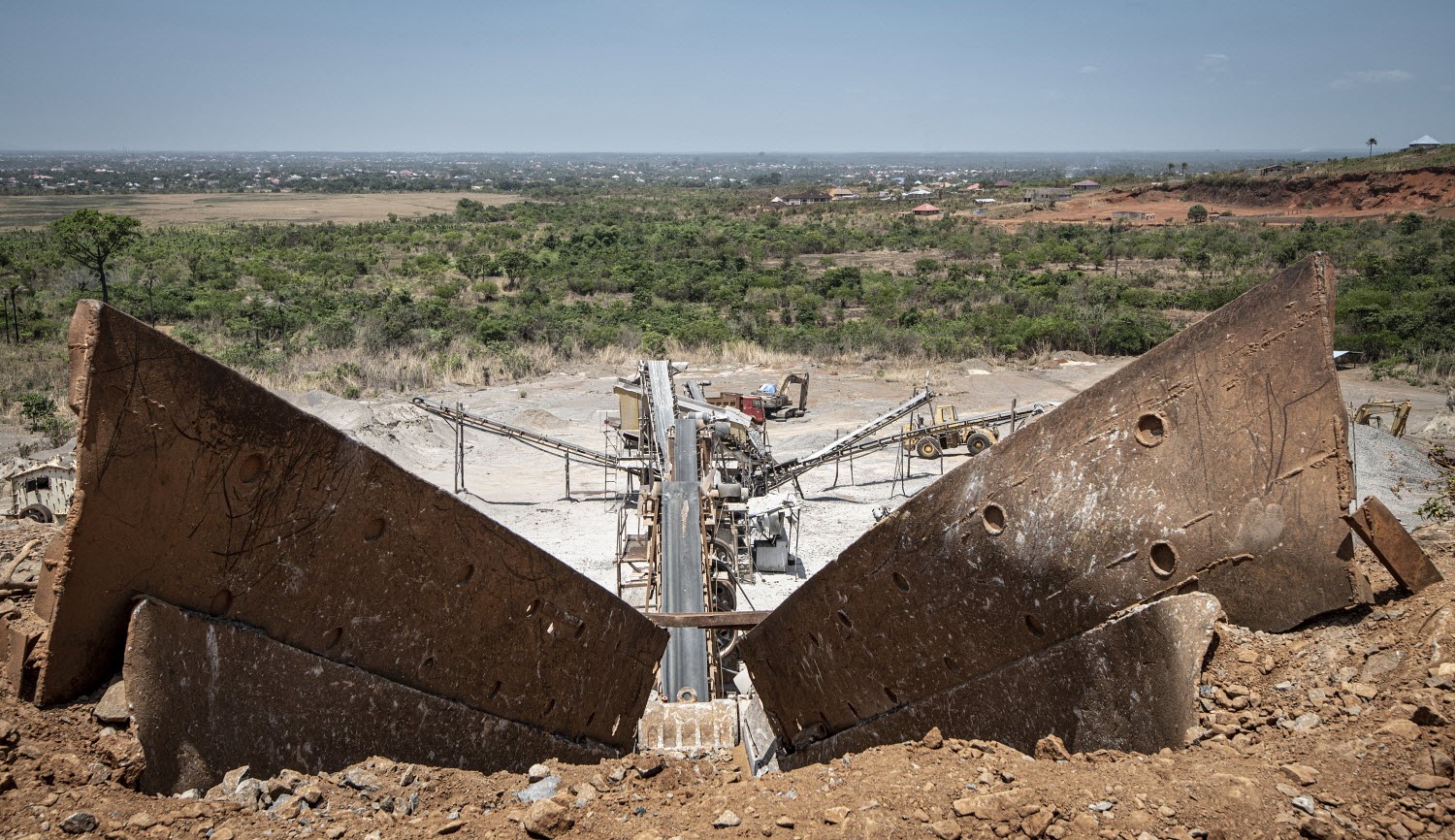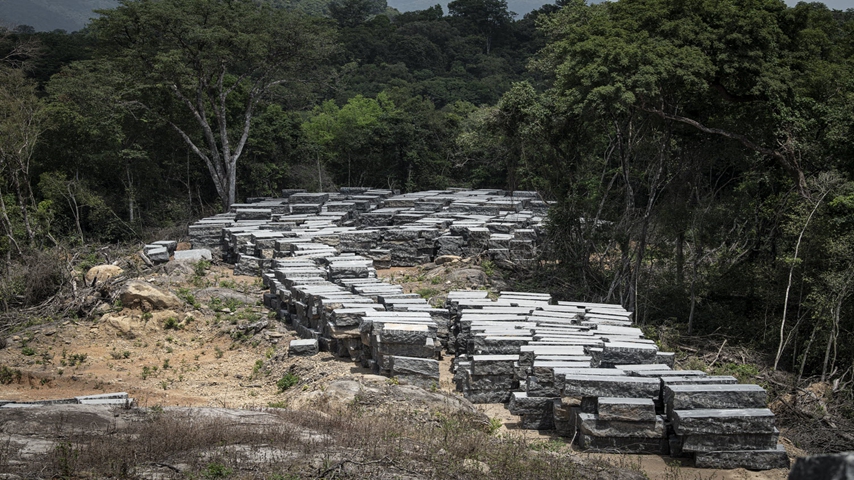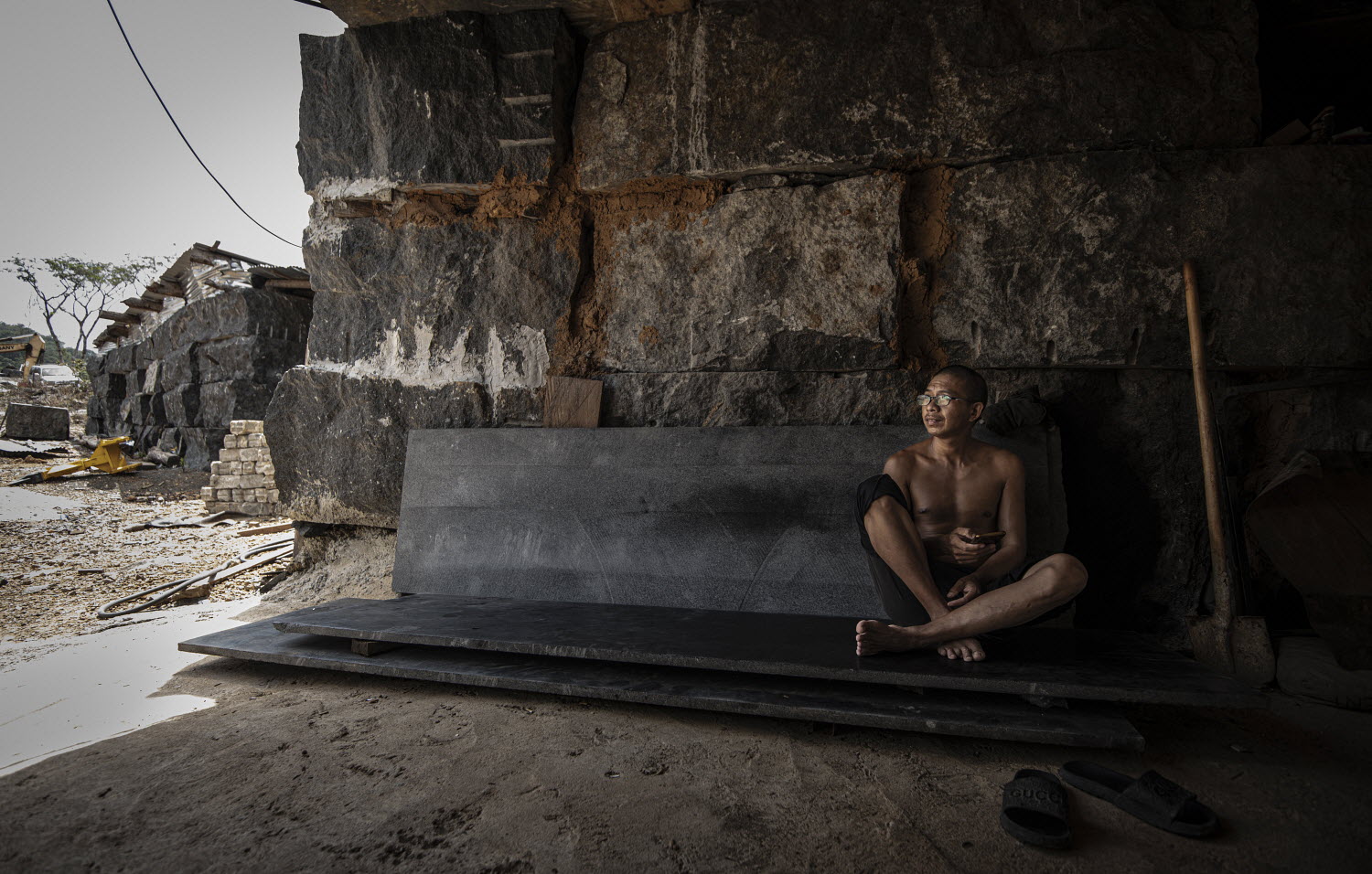The Fallout from China's Push into Sierra Leone
Text by Samuel Lovett
Photos by Simon Townsley/Panos Pictures
Abridged by Syharn Shen (沈思含)
The Fallout from China's Push into Sierra Leone
Text by Samuel Lovett
Photos by Simon Townsley/Panos Pictures
Abridged by Syharn Shen (沈思含)

Sylvia, a Chinese teacher from the Confucius Institute, helps Aisha prepare for a Chinese opera competition at Fourah Bay College Primary School.
The Hill Station Club in Freetown, once a colonial social hub, now stands in disrepair, symbolizing Britain's lost influence in Sierra Leone. Today, a new power has taken its place: China. Signs from 2021 mark 50 years of China-Sierra Leone relations. Chinese investments of £2.3 billion since the 1970s have reshaped Freetown, funding roads, housing, restaurants, and even the national stadium. Mandarin is now taught in schools. While China's influence has brought infrastructure and jobs, it has also fueled corruption, environmental devastation, and social unrest.
A joint investigation by The Telegraph and SourceMaterial revealed unlawful granite mining in Freetown's protected national forest, violent clashes between park rangers and Sierra Leonean soldiers protecting Chinese-run quarries, water pollution linked to mining operations, and plans to destroy a pristine beach for a Chinese-funded fishing harbor and marine park for captive dolphins.

Huaxing Quarries operates within the buffer zone of Western Area National Park, taking advantage of poor enforcement.
Xiao Peng, a Chinese businessman, openly boasts about his granite quarries within Western Area National Park, a UNESCO candidate site. Though the park was granted protected status in 2012, three Chinese-run quarries operate there illegally, visible on Google Earth. Peng's company, Hong Tai, obtained permits within just four months. Mayor Yvonne Aki-Sawyerr condemns the government for turning a blind eye and facilitating corruption. Park rangers, armed with only slingshots, report violent encounters with soldiers guarding the quarries.
Prince Dumbaya, a ranger, recounts that they confronted the Chinese workers, telling them, "This is our park," but the military responded with gunfire. Since April 2021, nearly a quarter of the forest has been lost, equivalent to 5,507 football fields. At current rates, only 21% of forest cover will remain by 2027. The destruction exacerbates deadly mudslides and threatens Freetown's water supply. "There will be a massive water scarcity problem," warns UN coordinator Babatunde Ahonsi.

Granite blocks at Hongtai Company's quarry near Comfort Bridge in Western Area National Park, where businesses exploit weak laws and corruption to extract resources.
Nearby, villagers report health issues linked to Chinese-run quarries. In Tokeh, village leader Alajih Slowe recalls how the community's water turned white after Hong Tai began operations. "Up to 20 people fell ill with diarrhea," he says. Though the issue was supposedly resolved, he fears ongoing risks. Peng denies wrongdoing, stating that he obtained all legal approvals and that his quarry does not pollute because no chemicals are used.
China's reach extends to Sierra Leone's coastline. At Black Johnson beach, a proposed £44 million Chinese-funded fishing harbor threatens a pristine ecosystem. The government claims the project will bring development, but locals fear destruction. Tommy Gbandewa and Jane Aspden have lived there since 2009, sharing the beach with turtles, manatees, and endangered monkeys. Now, a drilling machine encroaches on their paradise, guarded by armed soldiers. "It will be a disaster," says Gbandewa. Aspden challenged the government but was arrested and charged with conspiracy to cause riotous behavior. Meanwhile, an environmental impact report justifying the harbor appears fraudulent—authored by a non-existent firm, referencing China's currency (Yuan) instead of Sierra Leonean Leones, and proposing a marine park to train dolphins in captivity.

A Chinese worker at Hongtai's quarry near Comfort Bridge pauses for a break amid granite extraction.
Contact Us | Plan a Visit | Donate
8 Lide Road, Beitou 11259, Taipei, Taiwan
886-2-2898-9999
005741@daaitv.com
©Tzu Chi Culture and Communication Foundation
All rights reserved.
